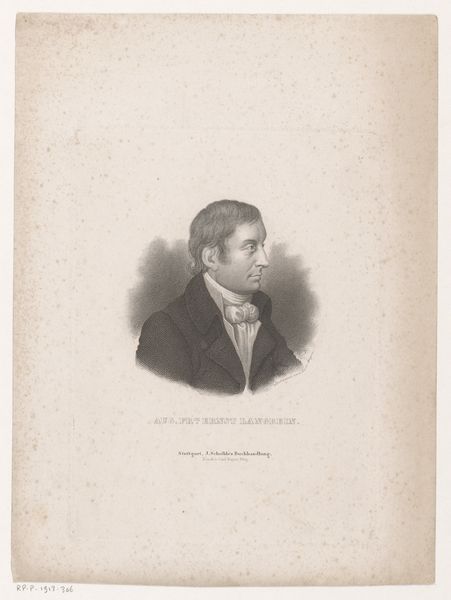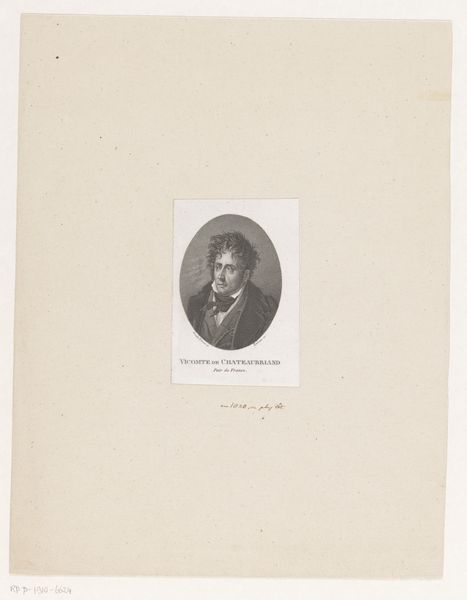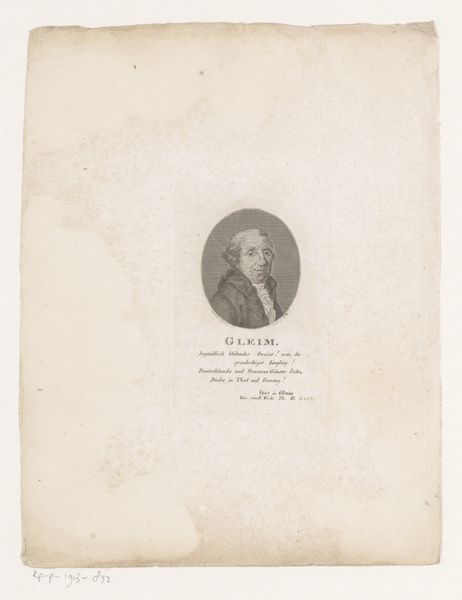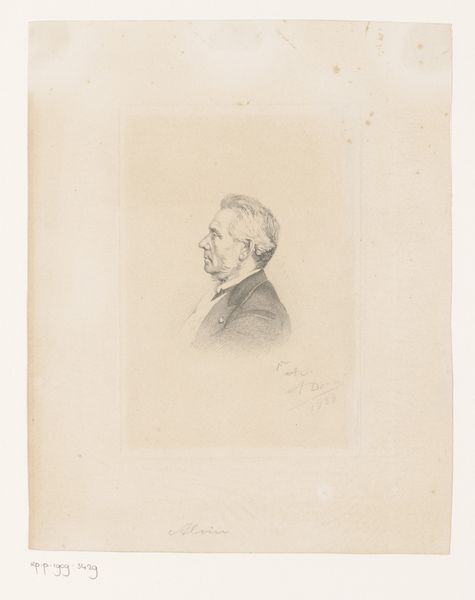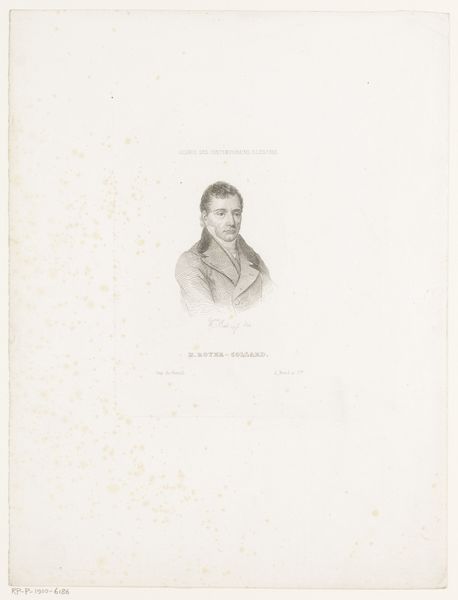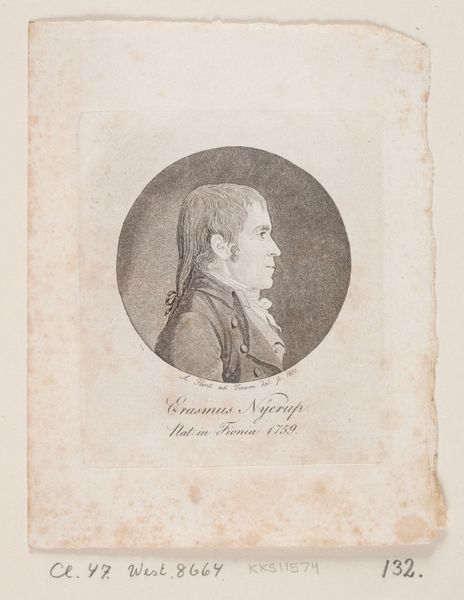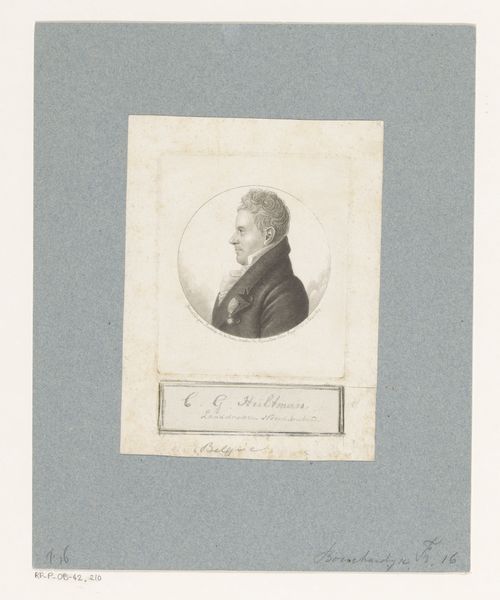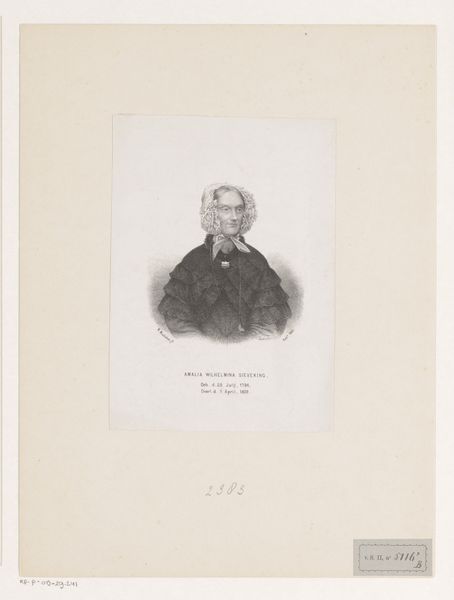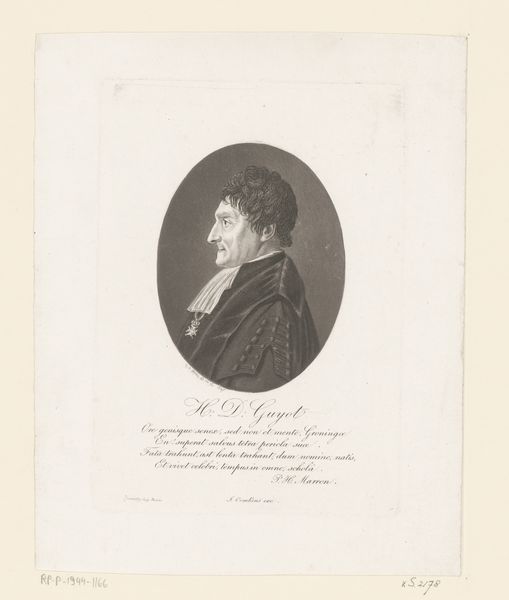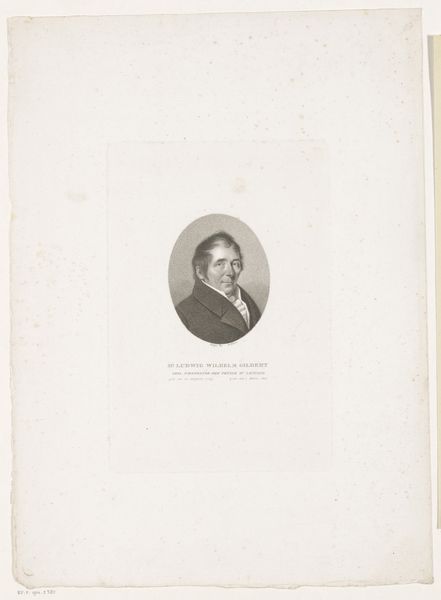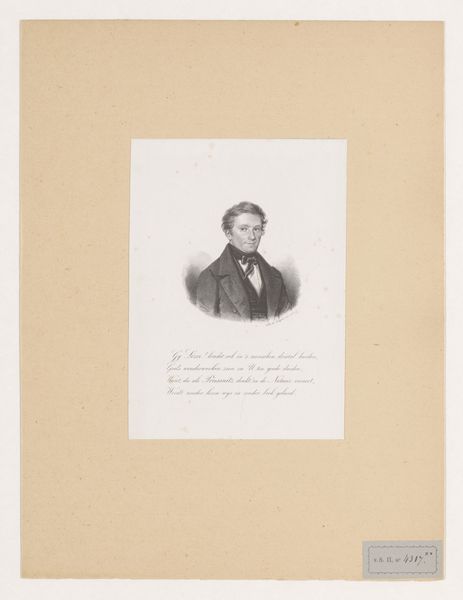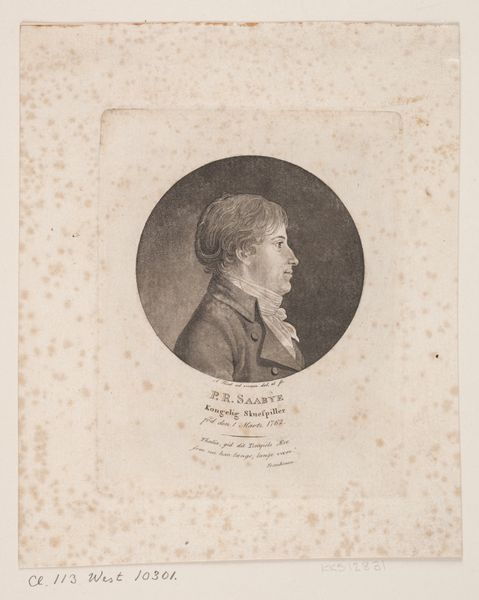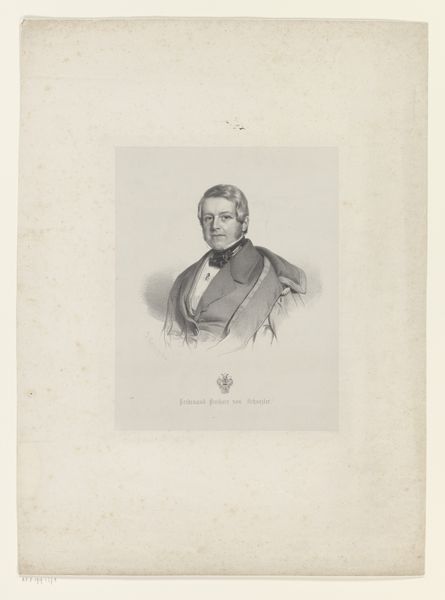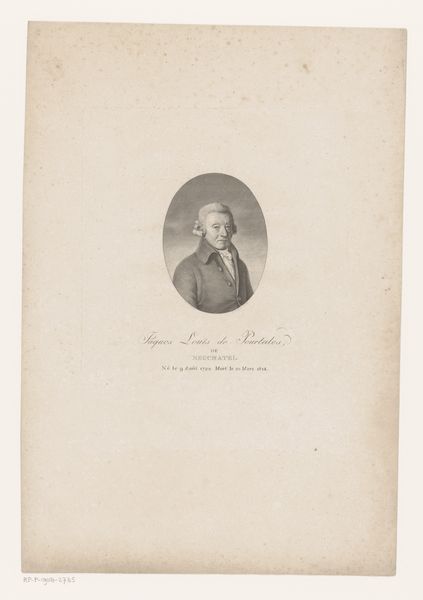
drawing, paper
#
portrait
#
drawing
#
paper
#
romanticism
Dimensions: height 182 mm, width 118 mm
Copyright: Rijks Museum: Open Domain
Editor: This is a drawing called "Portret van Albrecht Daniel Thaer" from 1804 by Johann Friedrich Bolt, rendered in lines on paper. The subdued greys and whites give it a quiet, historical feel. What can you tell me about this portrait from a historian’s perspective? Curator: This image provides us with a window into the late Enlightenment and emerging Romantic era, and the role of portraiture in solidifying social standing. Think about it – why commission a portrait like this at the time? It speaks volumes about the subject's importance, right? Editor: Definitely, but who was Albrecht Daniel Thaer? What made him significant enough to be portrayed? Curator: Thaer was an agricultural scientist, considered a pioneer in scientific agriculture. These portraits weren't simply about aesthetics. They were about constructing and disseminating ideals of knowledge, progress, and national identity. Public images like this drawing played a crucial role. How do you see that playing out here? Editor: I suppose having a portrait of Thaer would help promote the idea of scientific agriculture to others. It’s a way of saying this man is important and so are his ideas. Curator: Precisely! And considering the style, the subtle lines, and focus on capturing a likeness, how might that connect to the broader Romantic movement, which placed emphasis on individuals? Editor: Hmm, so this romantic style combined with the purpose of portraying an influential scientific figure… interesting. It’s like it's merging science and the individual in one portrait, capturing both personal identity and promoting scientific progress in society. Curator: Absolutely. The seemingly simple drawing reflects larger social and intellectual shifts taking place in that time. The public role of art is so evident here. Editor: Thanks! I hadn’t considered it in that light before, but seeing it as part of this movement for societal improvement really sheds light on the piece.
Comments
No comments
Be the first to comment and join the conversation on the ultimate creative platform.
